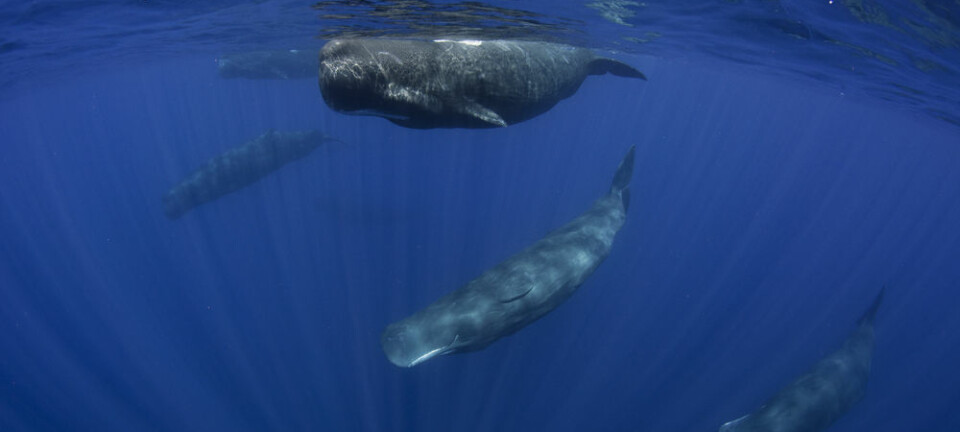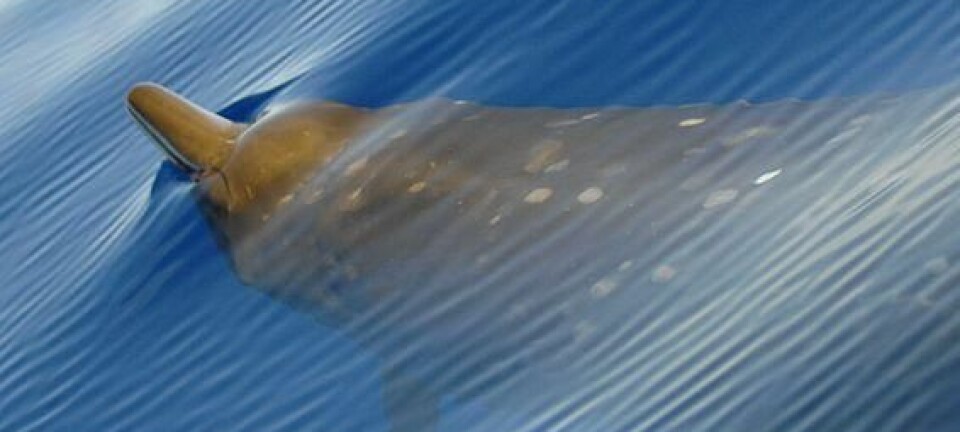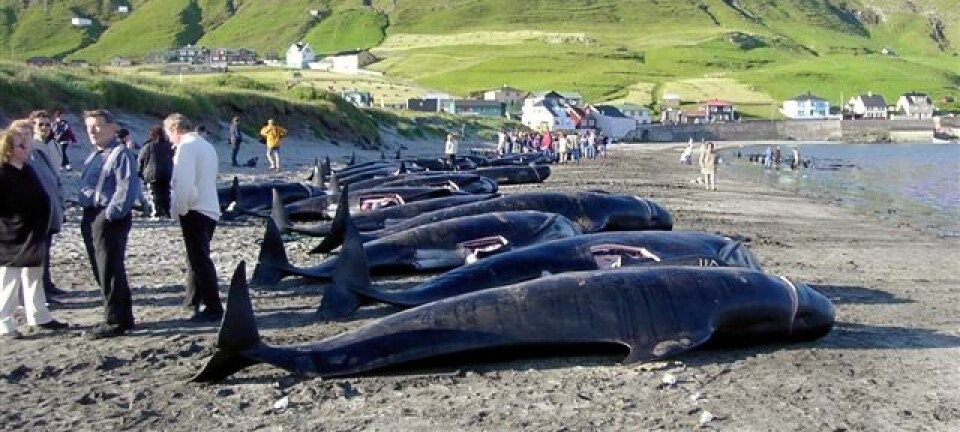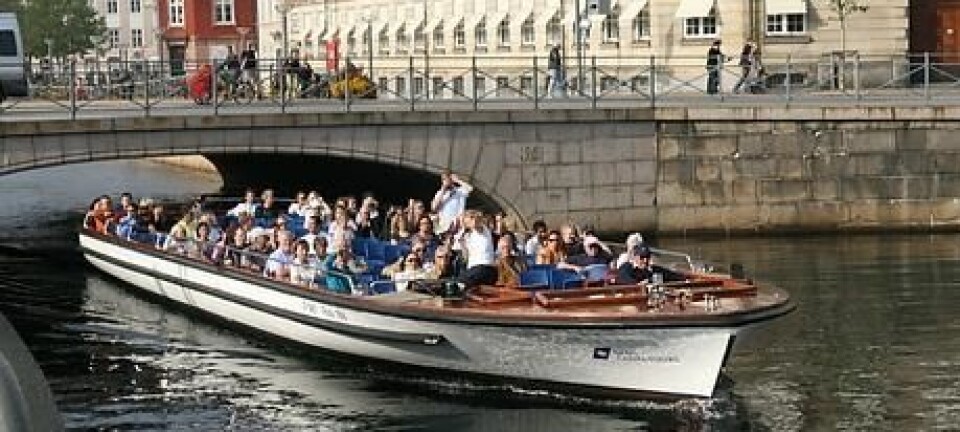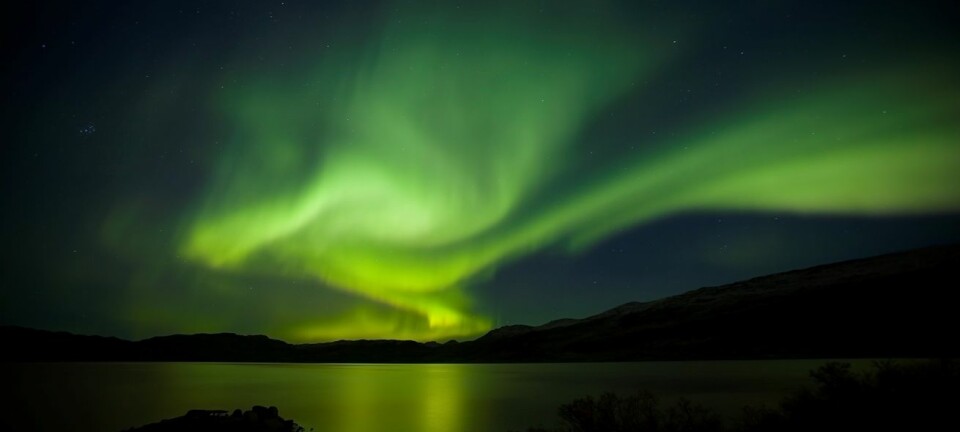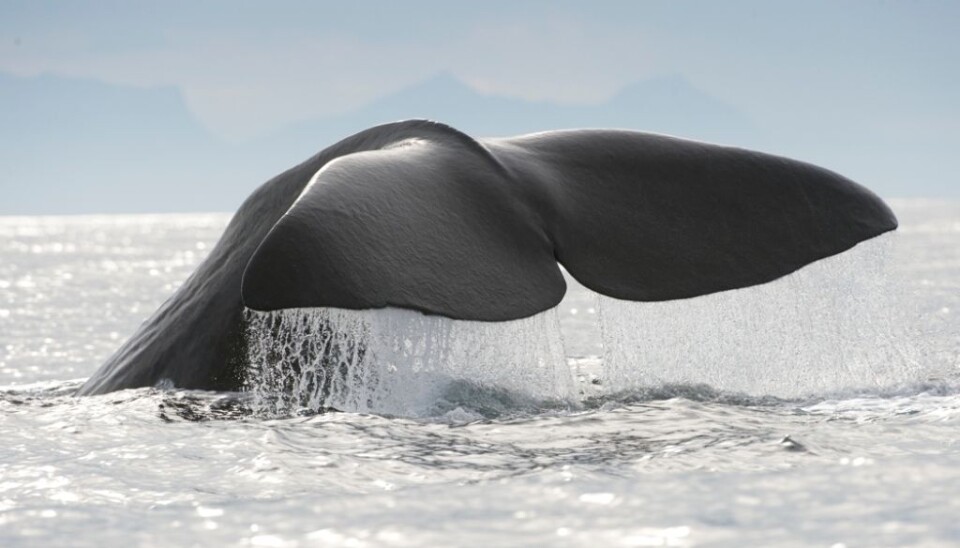
Researchers take tourism to a higher level
When research hooks up with the travel business, tourists can expect much more meaningful experiences. This is seen in research on whale safari tourism.
Denne artikkelen er over ti år gammel og kan inneholde utdatert informasjon.
“When the whale slapped its tail before plunging down again, time stood still. It was as if it was saying goodbye to us.”
A Danish tourist speaks of her epiphany out there on the ocean when she met the gigantic animal. She had encountered something larger than herself, in every sense of the word.
People in the travel industry have realised that tourists want memorable and extraordinary experiences.
But they also want something that lasts longer. They seek knowledge.
Great success

Increasing numbers of tourist aim for Andenes in Norway’s Vesterålen archipelago, or to various locations around the coast of Iceland. They are obviously looking for something other than warm, sunny beaches.
Often they travel across the world to go out in boats, in all kinds of weather, getting doused with sea spray and struggling with seasickness, just to catch a glimpse of a whale.
Whale safaris are among the notable success stories in the Norwegian and Icelandic travel industries. Cooperation among researchers and tourism outfits is a key ingredient, according to Hindertje Hoarau-Heemstra, a research fellow at the Bodø Graduate School of Business at the University of Nordland.
The Dutch researcher has studied the whale safari/whale watching trade in the two Nordic countries. Her dissertation is part of Norway’s largest research project on tourism – Northern InSights.
Easier to find whales
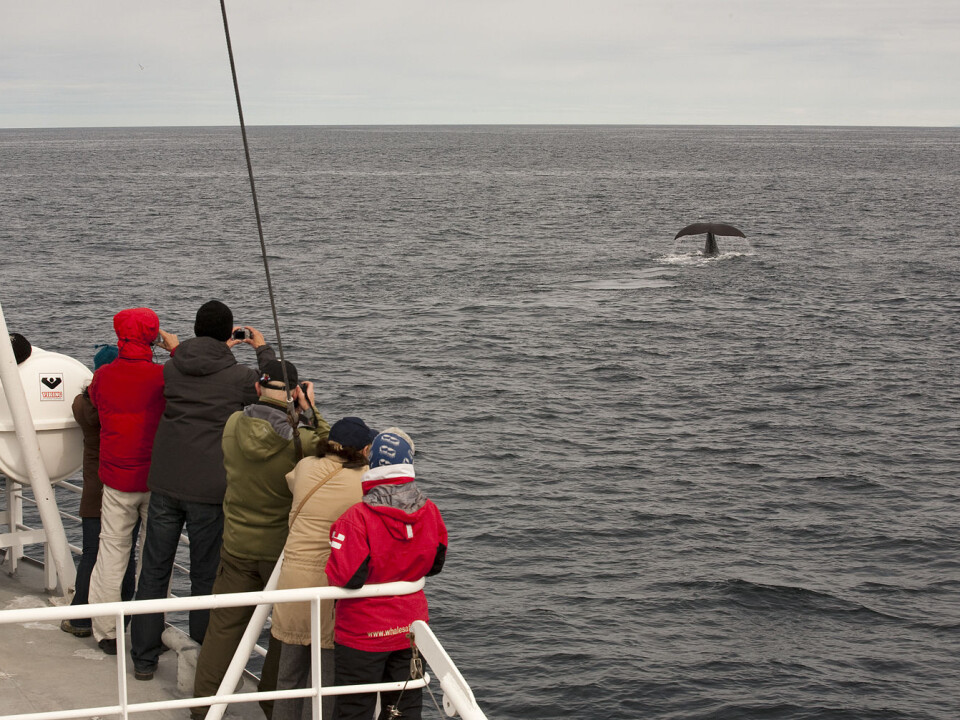
Researchers and other observers are steadily on the watch at a lighthouse outside Andenes monitoring the movements of whales. They use a powerful telescope which can spot the mammals up to 30 kilometres away. This helps them direct tour operators to the animals.
This collaboration means a great deal to the tourists. Now whale-watchers at Andenes are almost guaranteed that their voyage will be successful.
Telling the good stories
But even before locating any whales, researchers help in providing thrilling and informative narratives. Visitors to whale centres are treated to expert knowledge on the lives of whales.
This acquaints the visitors with the deep-sea creatures which they will later be viewing at fairly close range. At the outfits that Hoarau–Heemstra studied, the researchers also go along in the boats, searching for the whales.
Goosebumps

Ann Heidi Hansen recently took her PhD on what she calls the customers’ presence – goosebump or neck-hair raising experiences – at the University of Nordland.
One thing she did was to quantify the tourists’ thrills by having them plot graphs of their experiences, from the time they got on the boat until they disembarked.
“Most don’t expect to get seasick on the way out to the whale waters. But many do. So the outbound voyage isn’t always a pleasant experience.”
When they get out in the whale area their concentration is focused. The researchers drop hydrophones overboard. These are microphones that detect sub-surface sounds.
While waiting for the characteristic clicking sounds which indicate that a whale is rising from the abyss for air, the tourists become all the more attentive.
Eventually the whale breaks the surface and spouts
This is when the hair stands up on the arms and necks of the whale watchers. Time stands still and all attention is on the whale.
Do not disturb
In addition to what is an emotional experience for so many, it’s meaningful for the tourists to learn about the species of whale they are seeing and how it lives in the ocean.
“The researchers also explain that whales shouldn’t be disturbed. So the vessels keep their distance. After learning more about the animals and attaining a certain relationship to them, the tourists become all the more concerned about their welfare,” says Hansen.
A win-win situation
When researchers join the tourists out on a safari they share expert knowledge about whales and let them in on the use of scientific tools and technology. The researchers benefit too, as the fares pay for voyage and give the scientists access to the boats. This enables them to do much more fieldwork than they could afford through grants.
“This is a win-win situation for both parties. The natural scientist makes use of the travel industry and the tourist firms are continually accruing more knowledge from these researchers,” says Hoarau-Heemstra.
Marine biologist and tour operator
The Italian Daniele Zanoni is a marine biologist who also works professionally with whale safaris at Andenes. He collaborates closely with other researchers and thinks this way of linking travel experiences to education is an important aspect of modern tourism.
“Our tourists are glad to learn that research is being conducted on whales. They want to know more about the whales’ biology and its niche in the ecosystem. We also have a museum connected to the centre which, among other things, features the skeleton of a sperm whale. On board the vessel it can be hard to assess how colossal these animals are. They get that understanding up close at the centre.”
Translated by: Glenn Ostling







